Popular Drinks That May Cause Lasting Damage to Your Gut
Gut health has been shown to be important to keep your immune system healthy. Research also suggests that your gut microbiome may also affect your central nervous system, which controls your brain function. We know that what you eat certainly can affect gut health, but what you drink can also have an effect.
Drinking the wrong types of beverages has the potential to have a damaging effect on your gut. Here are 8 drinks to minimize in your diet and why reaching for them regularly may have lasting damage to your gut. Keep in mind that many of these beverages can be consumed in moderate qualities with no negative side effects. In addition, the adverse reactions that happen after consuming some of these drinks may only occur in sensitive individuals, so it’s best to consult a medical professional if you’re concerned about how one of the beverages below is affecting your health. Read on, and for more on how to eat healthy, don’t miss Popular Foods Proven to Cause Lasting Belly Fat, Science Says.
- Advertisement -
Energy Drinks
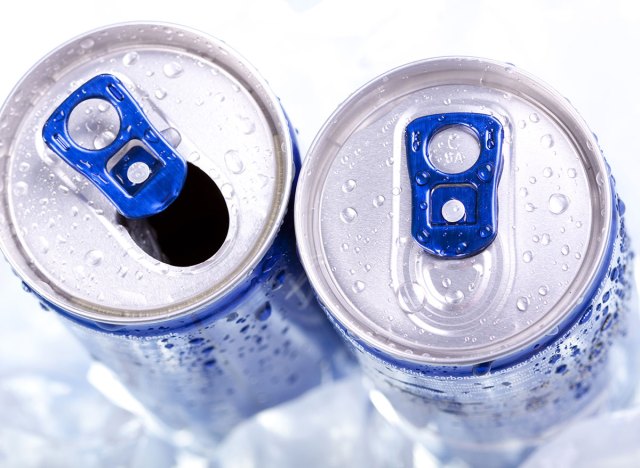
If you’re grabbing those energy drinks to get out of your daily fatigue, you may want to think again. According to Lauren Harris-Pincus, MS, RDN, founder of NutritionStarringYOU.com and author of The Protein-Packed Breakfast Club, those energy drinks “with high caffeine can cause gastritis, inflammation, increased gut motility, and diarrhea.” Pincus explains that the excess caffeine can lead to the stomach secreting more acid than usual which can worsen reflux symptoms. “It can also cause jitters and increase anxiety which can exacerbate symptoms in people with irritable bowel syndrome (IBS).” For more, read about 12 Dangerous Side Effects of Energy Drinks, According to Science.
Coffee
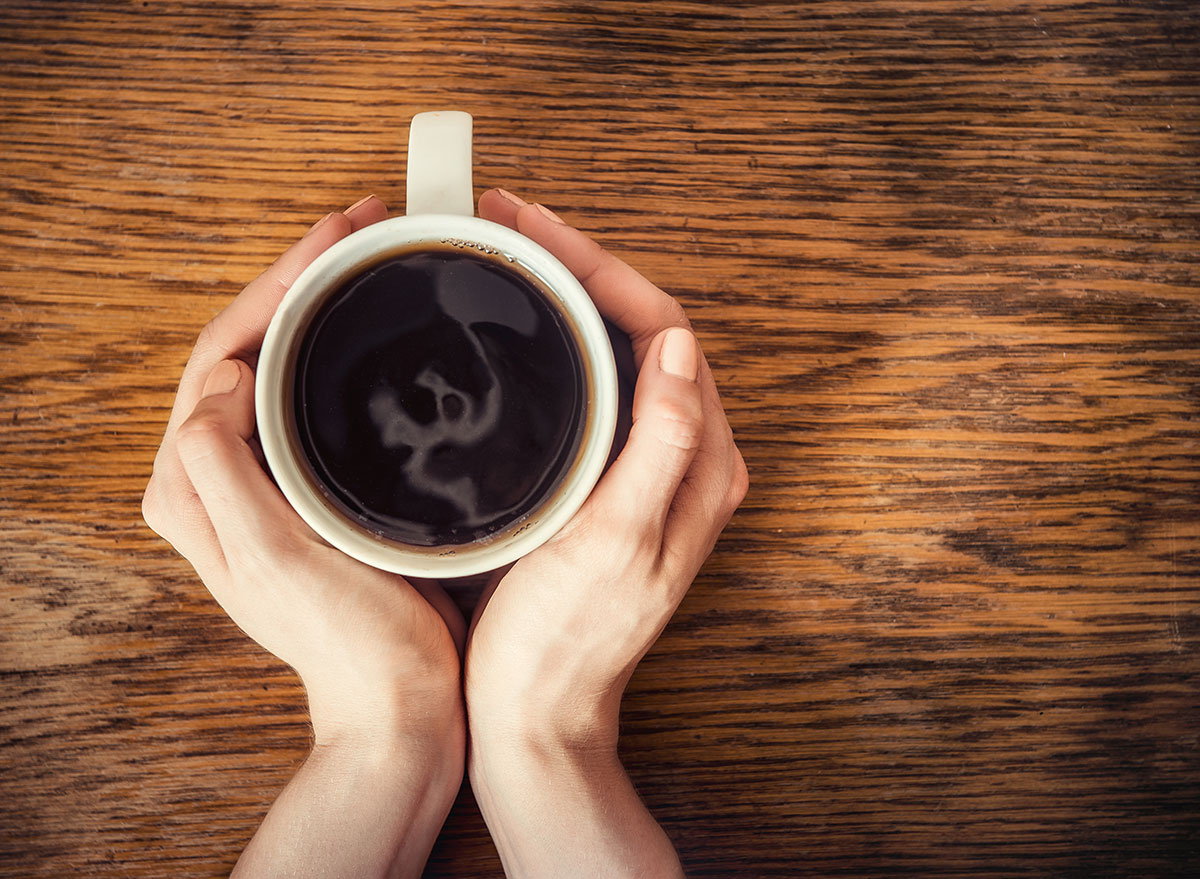
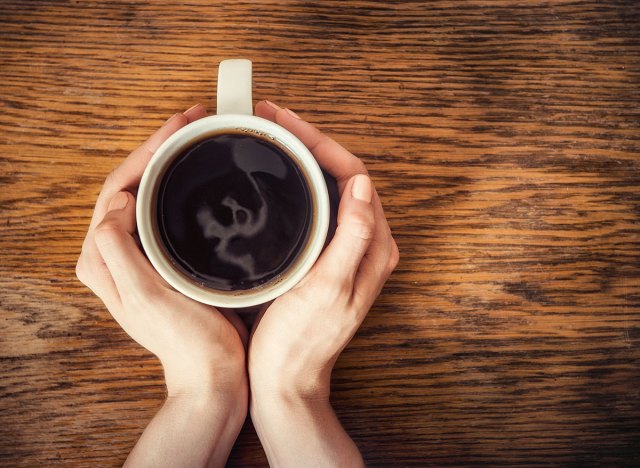
Caffeinated beverages like coffee are stimulants that increase gut motility, which means these drinks can make things move quicker down your gastrointestinal tract. This stimulant effect can lead to loose stool or diarrhea, which can lead to dehydration. In addition, caffeine is a mild diuretic, which means you’ll be running to the restroom to urinate as well. Further, caffeine can increase anxiety and make it tougher to sleep well. Stress and anxiety can worsen symptoms in people who have irritable bowel syndrome and inflammatory bowel disease. The FDA recommends a maximum of 400 milligrams of caffeine every day (about 3 cups). However, caffeine affects everyone differently and some people may metabolize it quicker than others. If you drink less coffee per day or switch to decaf, that can help alleviate some of the symptoms. While drinking coffee in moderation can have significant health benefits, drinking too much can cause these gut issues. If you’re not sure whether you’re overdoing it on caffeine, see these 7 Warning Signs You’re Drinking Too Much Coffee.
Regular Soda
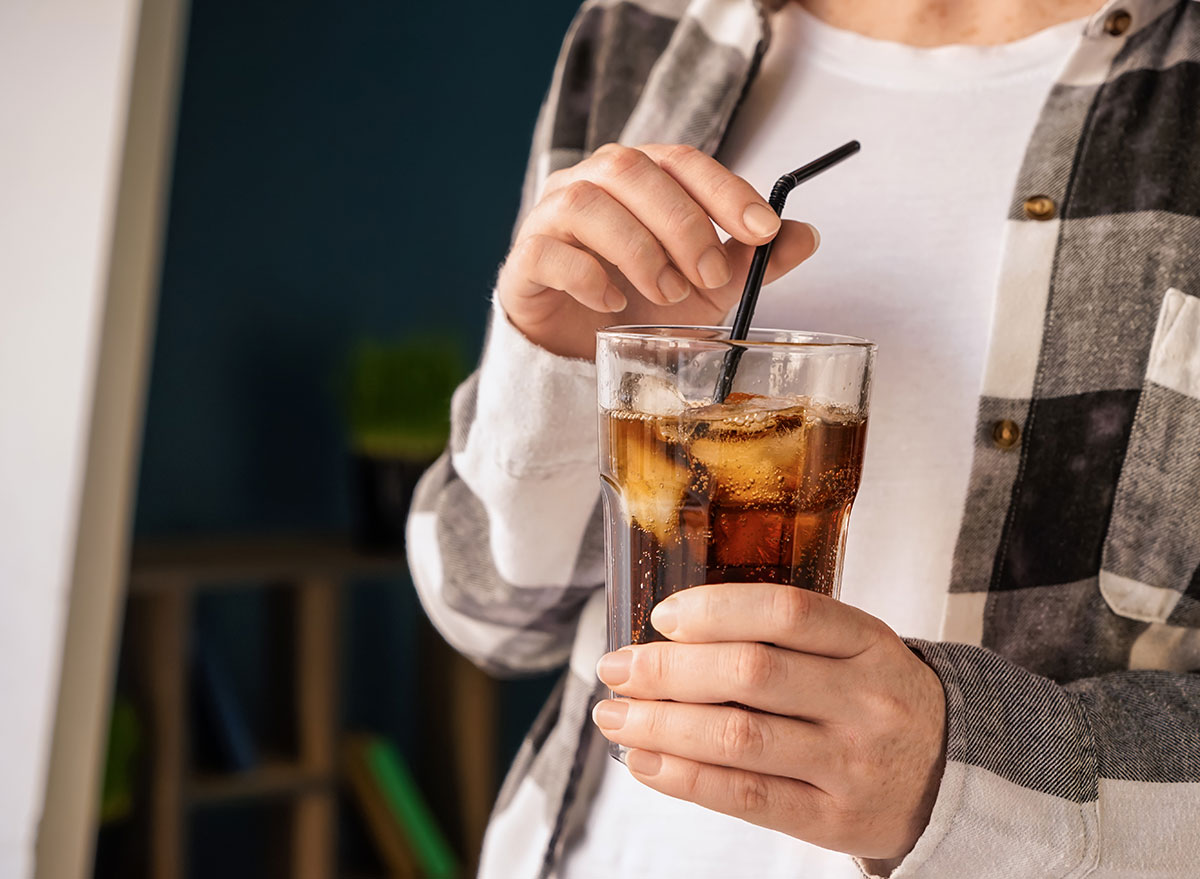
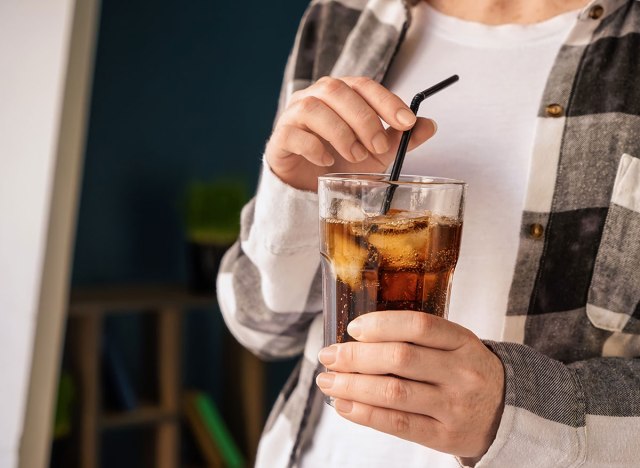
In folks with IBS or inflammatory bowel disease (IBD), drinking lots of refined sugars, like those in soda, can lead to gastrointestinal distress since the sugar may not be absorbed well into your intestines. This leads to water being drawn into the gastrointestinal tracts and into the bowel in order to dilute and flush out excess sugars, which can lead to loose stool and diarrhea.
Artificially Sweetened Beverages
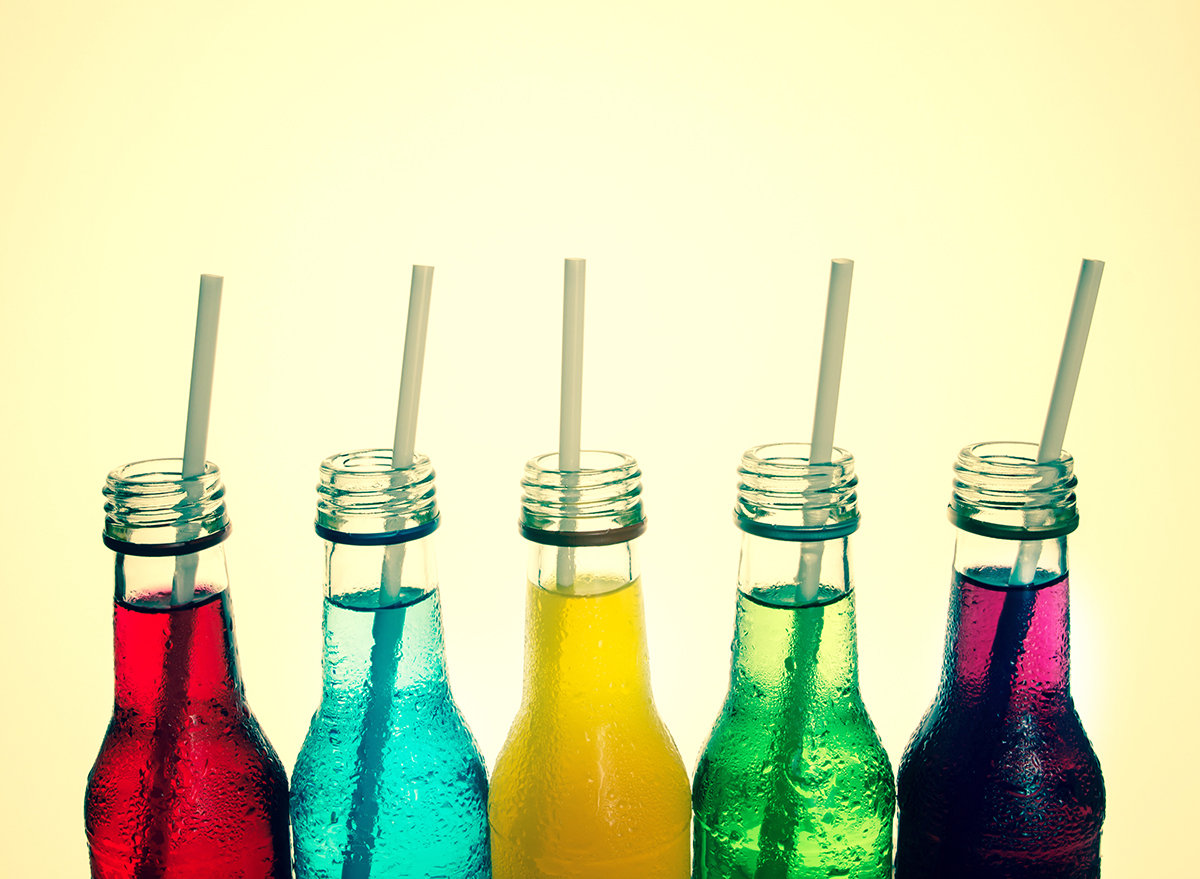
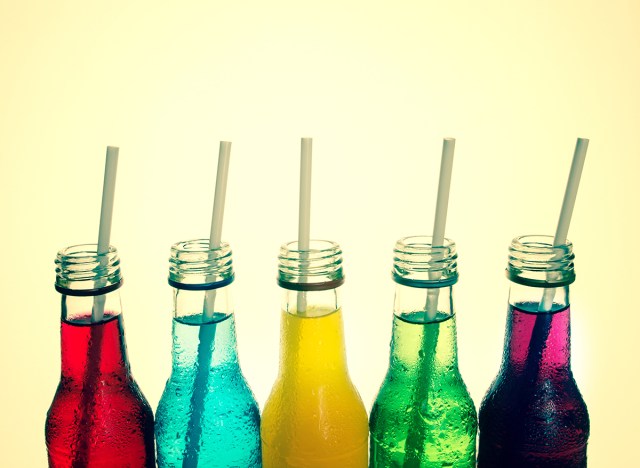
When you’re trying to watch calories, it’s not unusual to turn to zero calorie beverages that use artificial sweeteners like aspartame and sucralose. These ingredients can potentially lead to uncomfortable gastrointestinal symptoms such as flatulence, bloating, and diarrhea for some folks. If you find yourself sensitive to these artificial sweeteners, opt for plain water or flavored sparkling waters that contain no artificial sweeteners.
Alcohol
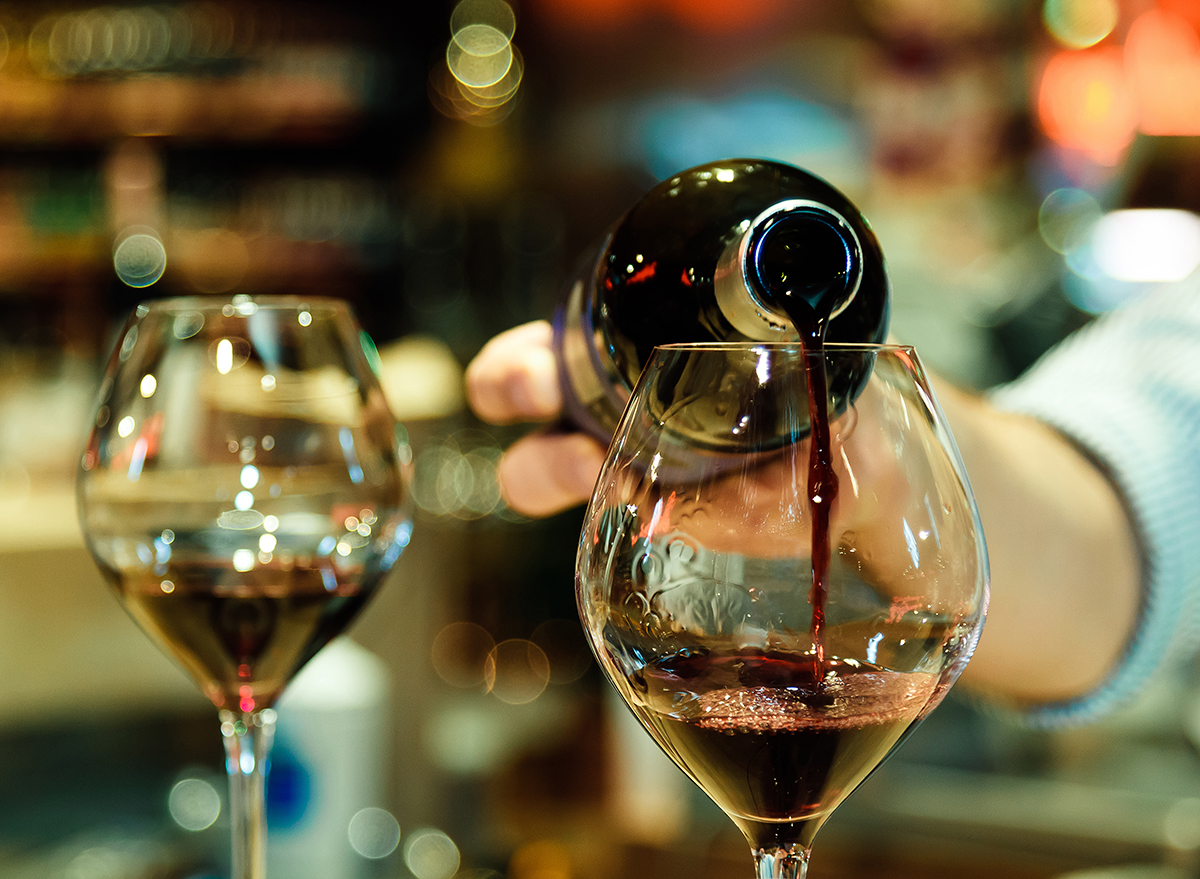
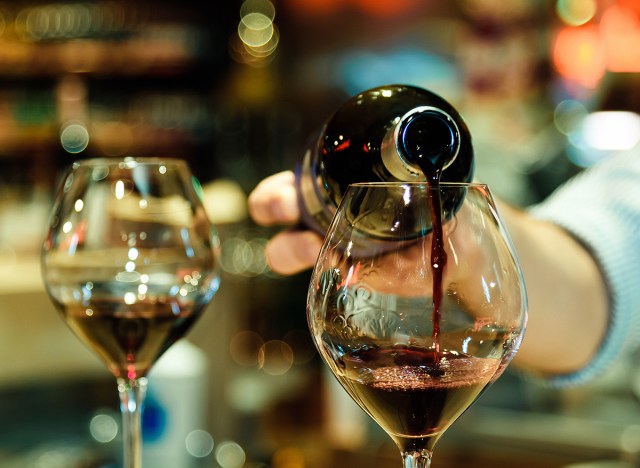
Having one too many on a regular basis “can affect the microbiota causing an imbalance of the bacteria in the gut with an overgrowth of the bad, unhealthy bacteria. This imbalance leads to inflammation,” explains Joan Salge Blake, EdD, RDN, nutrition professor, Boston University and the host of the hit nutrition and wellness podcast, Spot On! According to the 2020-2025 dietary guidelines for Americans, moderate drinking is defined as a maximum of 1 drink per day for a woman and 2 drinks per day for a man. One drink is defined as 12 fluid ounces of beer, 5 fluid ounces of wine, and 1.5 fluid ounces of 80-proof liquor like rum or vodka. Further, Dr. Salge Blake explains that chronic alcohol abuse can also damage the cells that line the gut increasing its permeability, which allows bacteria and the toxins they produce to leak into the bloodstream.
Carbonated Beverages
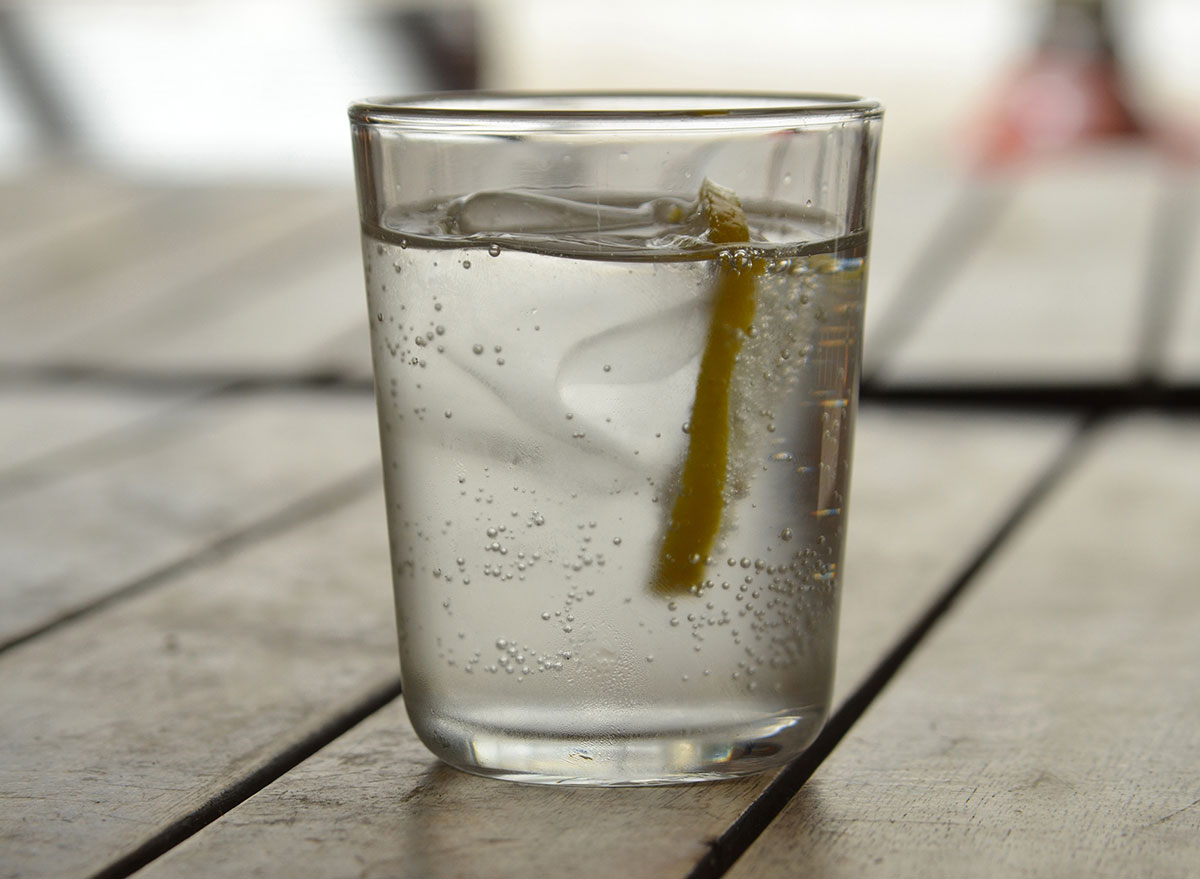
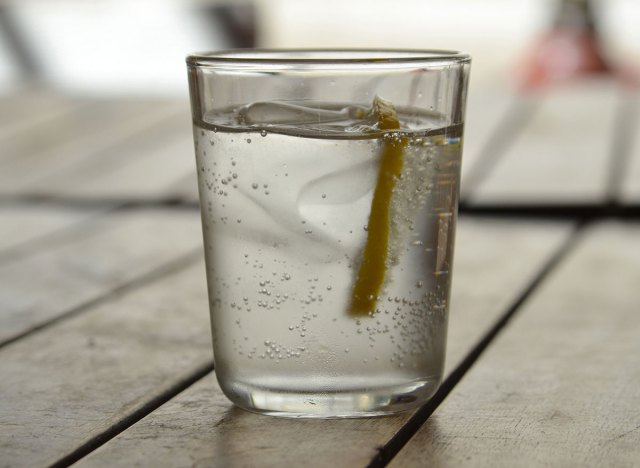
There is some research that links the consumption of carbonated beverages to gastrointestinal distress. In an article published in the journal Nutrition, Metabolism, and Cardiovascular Diseases, the authors discuss the effects of carbonated beverages on the mouth, esophagus, and stomach. The carbonation can lead to minor tooth erosion. In addition, some research suggests that when you drink more than 300 milliliters, or 1 1/4 cups, of carbonated fluids it may lead to gastric distress.
In addition, some research suggests that drinking carbonated soft drinks can increase the risk of pancreatic cancer.
Tea
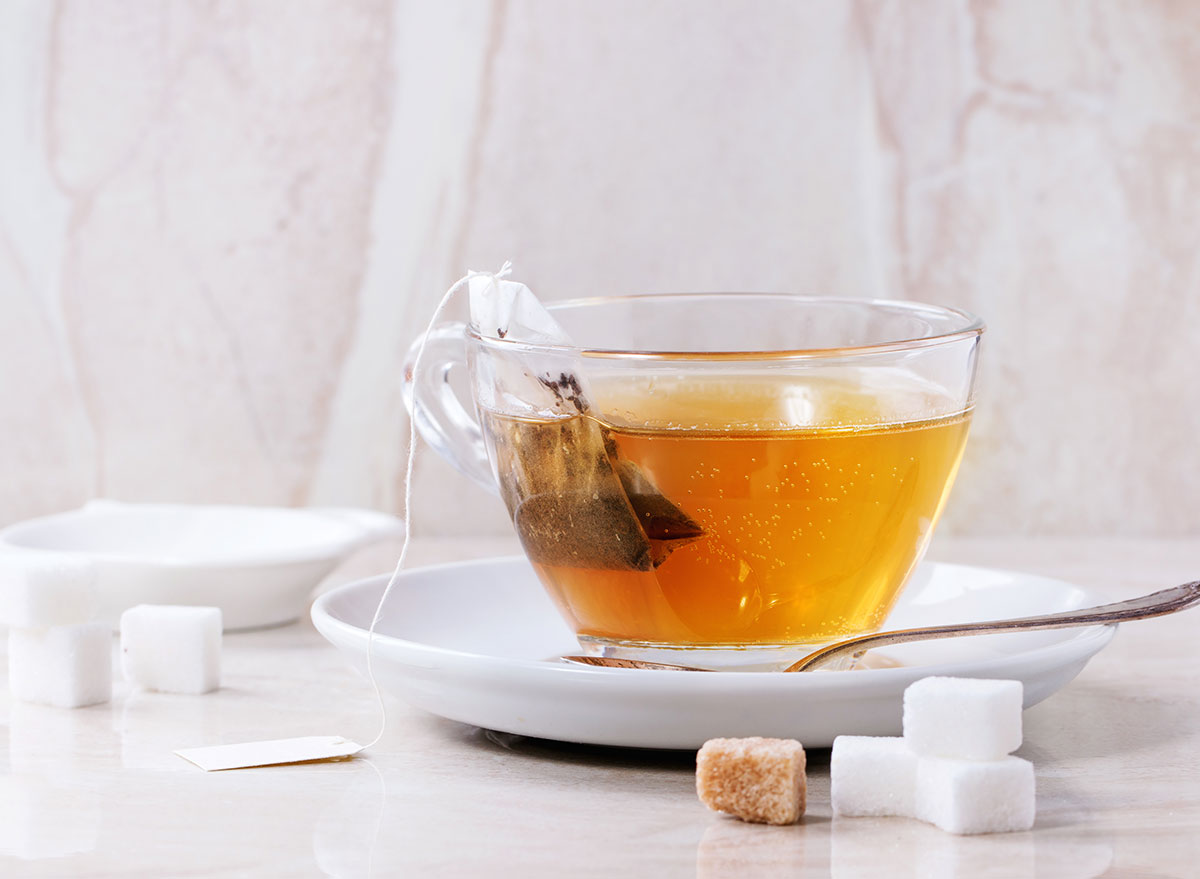
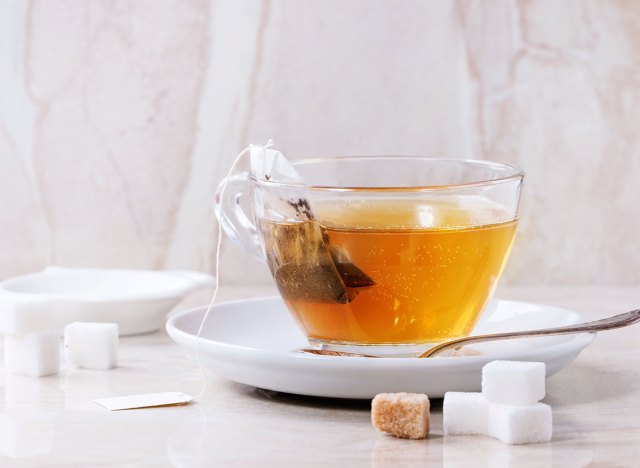
Teas that contain caffeine like green and black teas can increase the acidity in the stomach, which can lead to heartburn in some people. In addition, caffeinated teas have the same issues as seen earlier with coffee. If you love tea, you may want to opt for herbal or decaffeinated. (Related: 5 Mistakes That Make Tea Unhealthy.)
Chocolate Drinks
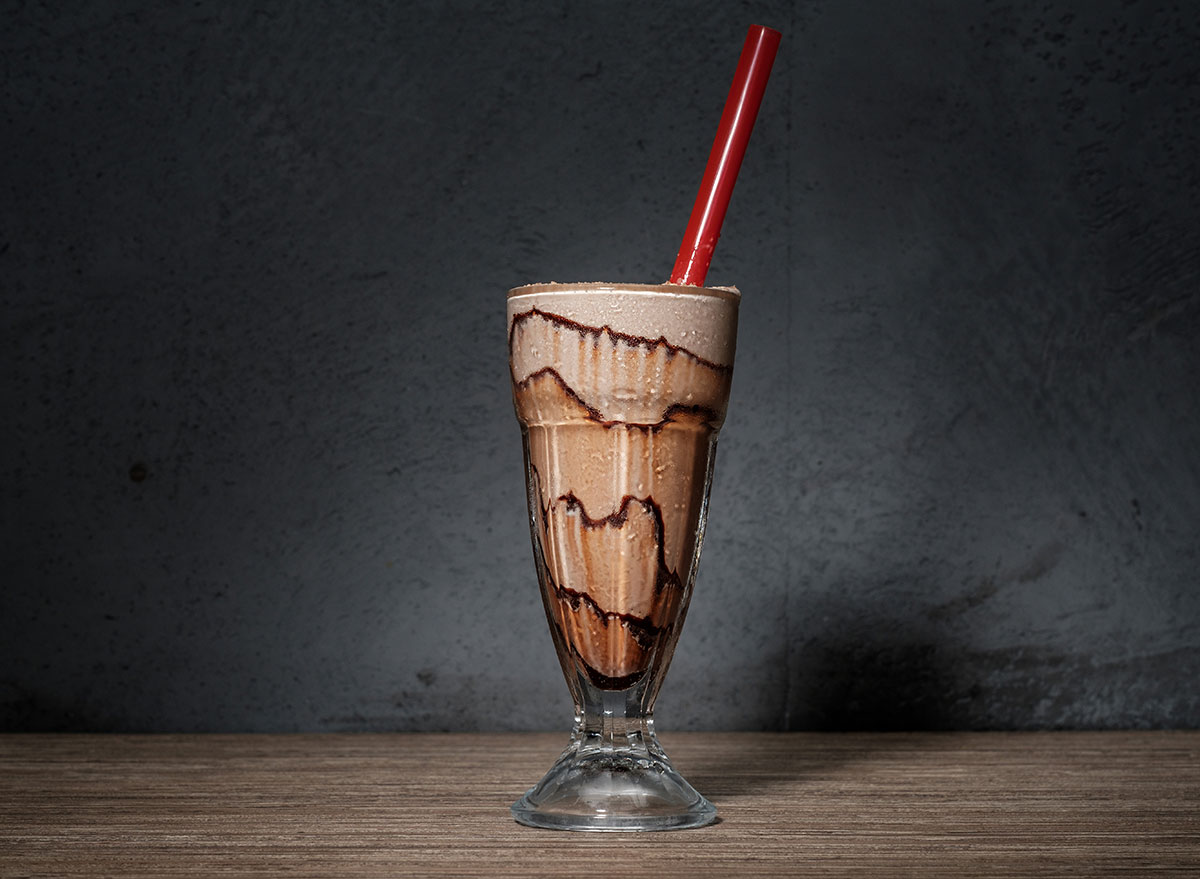
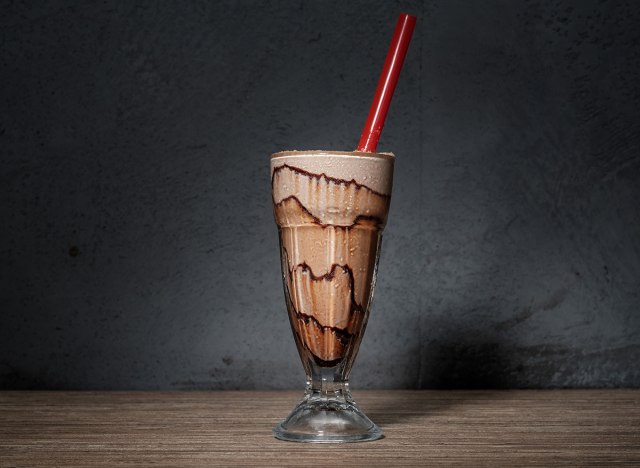
In some people, drinking chocolatey drinks can lead to acid reflux. This is when the acid in your esophagus goes in reverse, causing heartburn. If you experience acid reflux more than twice a week, you may be diagnosed with a more severe form of acid reflux known as gastroesophageal reflux disease (GERD). Other symptoms of GERD include difficulty swallowing, coughing, regurgitating food or sour liquid into the mouth, wheezing, and chest pain especially when you lay down after you eat. According to the Academy of Nutrition & Dietetics website, GERD can be worsened in some people by certain foods including chocolate and can trigger a flare-up. If chocolatey drinks exacerbate your acid reflux or GERD, then you probably want to avoid them. For more on beverages you should consider avoiding, see these Popular Drinks Proven to Do Bad Things to Your Body, Says Science.
The post Popular Drinks That May Cause Lasting Damage to Your Gut appeared first on .
